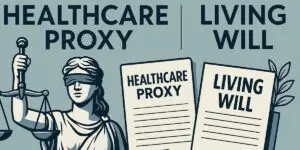Pandemic
The impact of Pandemic has affected humans in many ways, with quarantine and social distancing order, the pace of life has changed.
While this unprecedented time has been undeniably difficult, it has given many people a chance to spend more quality time with loved ones. It has also provided a space for thoughtfulness, reflection and reevaluation regarding what’s really important in life: family, health, happiness.
Factors to consider in estate planning during the Pandemic:
Have You Been Procrastinating?
Procrastination is not only normal, it’s absolutely understandable. No one really wants to think about the end of their life. However, the alternative is that something happens to you before having a proper plan in place. That’s why it’s time to put your procrastination to a stop.
Creating a trust or will so you can nominate guardians for your children, decide how your assets should be distributed after your death and specify your final arrangement wishes can help you gain peace of mind and get back to enjoying life.
Are Your Loved Ones Protected?
you are protecting your loved ones in the case something were to unexpectedly happen to you. Here are some key areas to cover in your trust or will:
• Defining arrangements for important family keepsakes and items.
• Laying out a plan for long-term health care.
• Naming guardians for minors and dependents.
• Communicating final wishes, funeral arrangements and burial requests.
• Clarifying the distribution of assets.
Your estate plan can also include policies that help provide your family members with a budget to help pay for health care, end-of-life expenses or outstanding debts.
Do You Have Key Documents In Place?
Having a proper estate plan can give you a sense of control and relief. You’ll feel safe knowing your family and legacy will be protected long after you’re gone.
With this, it’s important for your plan to be thorough. There are several key documents that are generally recommended:
• Will or trust
• Power of attorney
• Living will
• Health Insurance Portability and Accountability Act (HIPAA) authorization
• Designation of guardianship
• Insurance policies (life and disability)
Is Your Existing Plan Up To Date?
If you already have an existing estate plan, you’re one step ahead of the game. Many things can change during the course of life, whether they be regarding your assets or beneficiaries, and your estate plan should reflect those changes.
Marriage, divorce, the purchase of a new home, the birth of a child or grandchild or a death in the family are just a few examples of life events that warrant updating your will or trust. It’s also a good idea to revisit your plan every three to five years.
Don’t let pandemic act as a deterrent that prevents you from prioritizing your end-of-life planning. These uncertain times should be a strong reminder that anything can happen no matter how secure things feel. Estate planning should be inclusive, accessible and affordable for all because everyone deserves peace of mind.
Is Your Will or Living Trust Up to Date?
The first step in estate planning is making sure that you have at minimum the following documents: a will, durable power of attorney, and patient advocate designation. For many, a living trust will be the centerpiece of their estate plan, allowing for an orderly management of assets during times of incapacity, the avoidance of probate, and the orderly distribution of assets at death. Even after these documents are in place, they should be reviewed and updated, as appropriate, every few years.
Is Your Trust Funded?
A revocable grantor trust protects spouses, children and those with special needs; a properly drafted and funded trust can also help reduce or eliminate federal estate taxes. The terms of a trust may include who will control your assets upon your disability or death and may provide for gifts to charity, family, and friends. One of the most important benefits of a trust is that it allows an estate to be administered outside of probate court.
Are Any Changes Required to Your Durable Powers of Attorney and Patient Advocate Designations?
A durable power of attorney is a legal document that empowers a representative of your choosing, called an agent, to have authority to manage your financial affairs. A patient advocate designation is a legal document that names another individual as a patient advocate to make medical decisions on your behalf, in accordance with your wishes, once two doctors certify that you are unable to communicate decisions regarding your medical or mental health treatment. Having a durable power of attorney and a patient advocate designation in place is critically important, particularly in a time of a global pandemic.
At the time of your inability to act, if you have not designated an agent and a patient advocate, no one will be legally authorized to act on your behalf. Family members will be forced to go to probate court, expending time and incurring expenses, to request appointment of a conservator and a guardian to handle these responsibilities.
Get Help
If you would like to learn more about the necessity of estate planning as regards the Pandemic, please contact any of our estate planning attorneys today.









